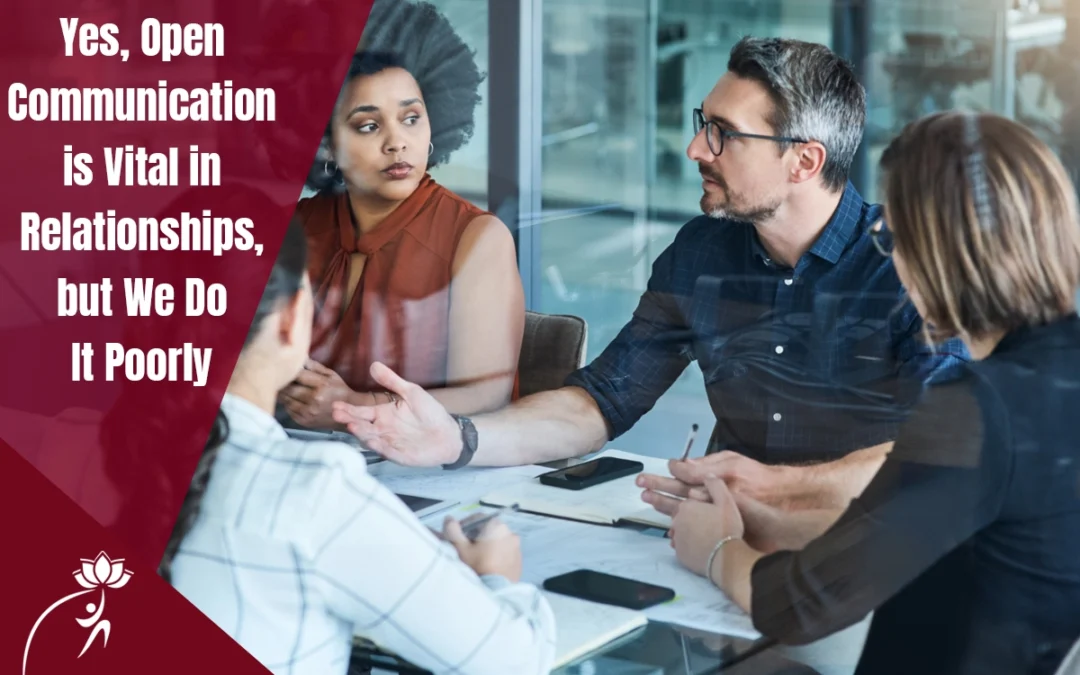While immersed in student activism in my early 20s, I developed an affinity for language. I devoured literature that sang with lyricism and was deeply moved by powerful orators. As a leader on campus, I was often thrust into the spotlight and addressed both small and large groups of people. From these foundational experiences, I learned that I had the ability to impact people with my words and so I strived consciously to develop clarity, coherence, and articulation in my speech. I just knew that I knew how to communicate!
Decades later, in my role as a math consultant, skillful communication would be essential and one of the guiding principles of the company for whom I worked. It was bedrock. We often studied and unpacked what it meant to be in communication, especially in school settings where, as change agents, we were often tasked with changing the culture in order to effect lasting change. One of our landmark texts (and NY Times best-selling) was Crucial Conversations: Tools for Talking When Stakes Are High by Patterson and colleagues. This book is a game-changer and immediately disemboweled me of any notion that I was an effective communicator. The truth was brutal. For sure, I was articulate and could formulate my words with good diction and present a coherent argument. But delivering a speech or an argument is transactional; effective communication is transformational.
As I evaluated my style of communication under stress, as per the book’s survey, I was devastated to learn that I was a BULLY—and had been for years dating back to my college days! I communicated aggressively with the sole goal of winning, of being right! In my personal relationships, my communication was often designed to win people over to my “side” rather than engage openly in a free flow of information and fully make space for alternate points of view. Did alternate points of view even exist?? This was my “come to Jesus” moment. I was eviscerated. Stunned. Mortified.
No one disagrees that communication is an essential part of any relationship. Survey any article about qualities of a healthy relationship and “communication” is guaranteed to be a top contender. But the reality is, many of us communicate poorly. What does it mean to be in open, honest communication, especially “where (1) the stakes are high, (2) opinions vary, and (3) emotions run strong?” This is how the authors define a crucial conversation. Most of us would rather avoid such conversations or engage in them poorly, resorting to our default modes of communication about which we are often unaware.
Consider the following:
- How well do you actually listen to understand? Many of us have listening pitfalls that prevent us from being active listeners and fully present.
- How self-aware are you of your wants/needs, triggers, “stories,” growth areas, and style of communication, especially under stress?
- What tools do you possess for noticing when conversations are beginning to detour AND for recalibrating?
- How do you approach or frame a difficult conversation? Do you? What are your goals during such moments?
The truth is, effective communication is a skill set that involves qualities such as self-awareness, emotional literacy, vulnerability, and faith in others as well as a set of tools for problem solving. How many of us were afforded sustained opportunities in our education and life experiences to develop skillful, heartfelt communication? In general, we tend to assume that because language is the currency of human beings that we naturally communicate well. This is a fallacy.
Once I “saw” the truth about myself, I had to first practice self-forgiveness and self-compassion for behaving so badly for so long in my speech. Then, I had to regroup, FAST! I now held in my hand a powerful tool that could drastically improve my personal and professional relationships. It was game on! So, I studied, role-played, practiced, self-assessed, stumbled, practiced some more, and began to engage in powerful new ways one moment at a time. In the process, I had to come clean to my friends and husband of then 21 years.
I had always assumed, matter-of-factly, that I, the verbal one (and speech-maker), was a far better communicator than my husband, the quiet, reserved one. What I discovered, equipped with a new set of lenses and tools, was that my husband had been the far superior communicator all along!! Not a better talker, but a better communicator. There’s a fundamental difference! You see, in my unevolved state, I had conflated the volume, frequency, and artistic content of my words—I so LOVE literature!!—with the essence and spiritual elements of open communication borne out of maturity. Even when I unloaded mercilessly on him, my husband (bless his heart), sat open, attentive, and ready to help resolve the ten thousandth complaint I levied against him! (Sheesh! I was a piece of work!)
The authors offer several powerful tools that facilitate mutual understanding and deep connection. If open, honest communication is a worthwhile goal in your relationships, then I strongly recommend this seminal text.
Here are a few tools that have transformed my own relationships and that could be incorporated right away:
1. Start with 
2. Learn to 
3. Master my 
I believe that open, honest communication is both a spiritual quest and the deepest form of intimacy in any relationship. It feels damn good to live in this new, evolved space and to truly see my beautiful love. I remain a humble, lifelong student. May your bonds grow stronger, too!
At Your Service,


About Glenda M. Francis
Glenda M. Francis is the founder of Audacious Inner Works Institute, a personal development and capacity building service organization. She is an ICF credentialed life coach specializing in confidence building and women’s wellness and power.

